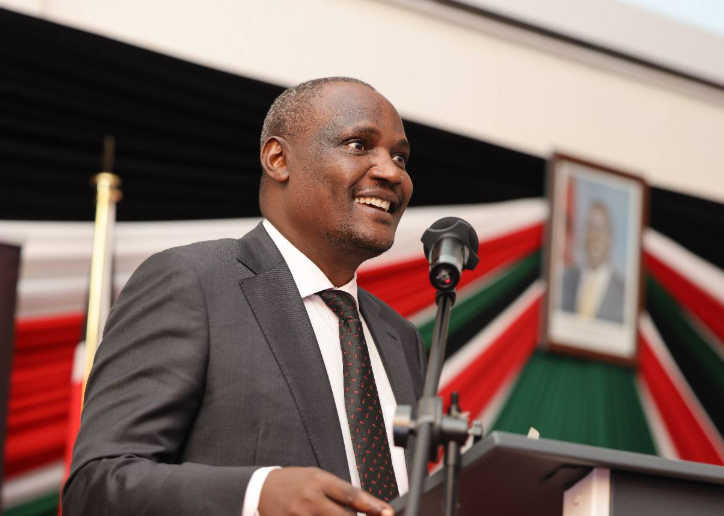The impact of financial year 25/26 budget on youth education and opportunities

Kenya’s fiscal year 2025/2026 budget brings a notable wave of changes, with far-reaching implications for various sectors, particularly education and youth empowerment. This budget, while presenting certain advantages, also poses challenges that could profoundly affect the educational landscape and the prospects available to young Kenyans.
While the government has reiterated its commitment to enhancing educational standards, the cuts to university education funding raise significant concerns. The State Department for Higher Education has identified various obstacles that may impede progress, including increased pending bills for universities, diminished resources for commercialization, and inadequate funding for research initiatives. These challenges, coupled with insufficient infrastructure and human capital to support STEM (Science, Technology, Engineering, and Mathematics) courses, could adversely affect the quality of education accessible to young Kenyans.
Additionally, reduced funding for commercialization and research can limit the scope of academic advancements, making it difficult for universities to compete globally. Moreover, the lack of adequate infrastructure and human capital to support STEM courses can hinder the development of essential skills needed for the modern workforce. It is important to recognize that Gen Z, keen on entering a highly competitive global workforce, are eager to pursue careers in technology and computer sciences, which require adequate infrastructure. However, these challenges may restrict their academic and professional prospects.
On a brighter note, the budget proposes an increase in expenditure for the State Department for Technical Vocational Education and Training (TVET). This boost is expected to enhance the quality and accessibility of vocational training, providing young Kenyans with practical skills that are directly applicable to various industries. By investing in TVET, the government seeks to address unemployment and equip the youth with the tools needed for self-sufficiency and career growth.
There are proposed interventions outlined in the Medium-Term Plan IV (MTP IV) which aim to generate approximately 1.2 million jobs annually, a mild attempt at addressing unemployment in Kenya. Notably, the affordable housing initiative and projects like Kazi mtaani have created jobs. The government has often cited the establishment of Constituency Industrial Development Centers to create online jobs, further diversifying employment avenues for Kenyans. However, despite these positive developments, there are growing concerns regarding the sustainability of these jobs and the persistent nature of unemployment in the country. The positions created may be temporary, especially the construction of affordable housing and Kazi mtaani. The nature of jobs lacks the stability needed for long-term career growth, raising questions about whether these initiatives can effectively combat the ongoing unemployment crisis.
The budget committee has proposed a cut from the National Fund for the Disabled of Kenya. This reduction could limit the support and resources available for disabled individuals, potentially affecting their access to education and employment opportunities. While the government may have prioritized other sectors, the implications for disabled youth are concerning.
The creative economy also receives notable attention in this budget, presenting promising developments for young artists and creatives. Plans to train 2,100 creatives, nurture 450 artists, and support 2,650 musicians in accessing studio space demonstrate the government’s recognition of the arts’ potential to drive economic growth. The State Department for Youth Affairs and Creative Economy has outlined ambitious priorities for the fiscal year, including coaching for 42,400 youth entrepreneurs and facilitating intergenerational dialogue involving over 219,000 youth. These initiatives aim to cultivate creativity, entrepreneurship, and leadership among the youth, providing them with a platform to showcase their talents and contribute to the nation’s cultural and economic landscape.
For a generation where career does not mean a suit, tie and briefcase in a corner office, these initiatives aim to foster creativity and entrepreneurship offering them a platform to showcase their talents and drive economic growth. By investing in the creative economy and noting the attempts at widening the tax base by taxing the digital space, the government recognizes the potential of the creatives in uplifting the nation’s cultural and economic status.
Deborah Moragwa is an Associate at Ernst & Young LLP (EY). The views expressed herein are not necessarily those of EY.
The budget for the State Department for Sports seeks to enhance the development of sports across Kenya. It aims to increase the number of athletes enrolled for training in sports camps and teams presented in international sports competitions. This focus on sports development is poised to nurture talent, promote physical health, and elevate Kenya’s presence in the global sports arena.
Kenya’s FY25/26 budget presents a mixed bag of opportunities and challenges for the youth. While there are significant allocations to vocational training, and the creative economy, the reduced funding for university education raises concerns about the quality of higher education. The cutbacks in resources for the disabled further highlight the need for balanced allocations that cater to all segments of society.
Moving forward, it is imperative to address these challenges to ensure that all young people have access to quality education, meaningful opportunities, and the support required to thrive. As the economy continues to evolve, it is crucial to ensure that job creation efforts are not only substantial but also sustainable, providing lasting opportunities for the youth and contributing to a more resilient labor market. The future of Kenya rests in the hands of its youth, despite the huge migration to other countries, and it is essential to equip them with the tools they need to contribute to the nation’s prosperity.
Deborah Moragwa is an Associate at Ernst & Young LLP (EY). The views expressed herein are not necessarily those of EY.















